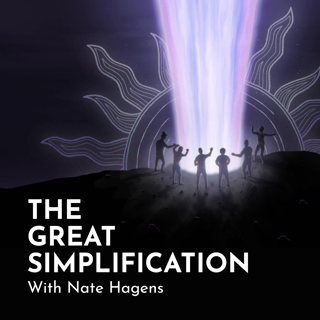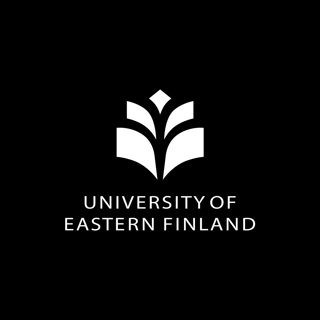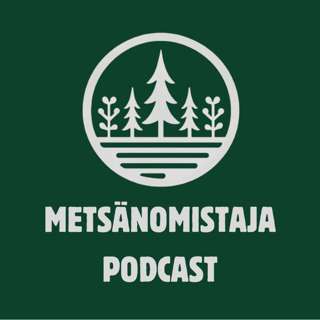
Daniel Schmachtenberger: “Bend not Break #2: Maximum Power and Hyper Agents”
On this episode we meet with founding member of The Consilience Project, Daniel Schmachtenberger. In the second of a four-part series, Nate and Daniel explore the relationship between energy, information, technology, the Superorganism, and the maximum power principle. How can we maximize returns on agency? Nate and Daniel explain the importance of hyper agents: those humans who have an outsized influence on what’s happening in the world. About Daniel Schmachtenberger: Daniel Schmachtenberger is a founding member of The Consilience Project, aimed at improving public sensemaking and dialogue. The throughline of his interests has to do with ways of improving the health and development of individuals and society, with a virtuous relationship between the two as a goal. Towards these ends, he’s had particular interest in the topics of catastrophic and existential risk, civilization and institutional decay and collapse as well as progress, collective action problems, social organization theories, and the relevant domains in philosophy and science. For Show Notes and Transcript visit: https://www.thegreatsimplification.com/episode/20-daniel-schmactenberger
25 Touko 20221h 51min

Dr. Simon Michaux: “Minerals and Materials Blindness"”
On this episode, we meet with Associate Professor of Geometallurgy at the Geological Survey of Finland, Dr. Simon Michaux. Why do humans ignore important mineral and material limits that will affect human futures? Dr. Michaux reveals how we are “minerals blind” — and the consequences of this myopia. To shed light on the effects of our minerals blindness, Dr. Michaux explores the disconnect between experts in renewable energy and economic and government leaders. Dr. Michaux offers individual strategies for us to overcome our energy and minerals blindness. How can we learn to adapt in order to overcome the coming challenges? About Simon Michaux: Dr. Simon Michaux is an Associate Professor of Geometallurgy at the Geological Survey of Finland. He has a PhD in mining engineering. Dr. Michaux’s long-term work is on societal transformation toward a circular economy. For Show Notes and Transcript visit: https://www.thegreatsimplification.com/episode/19-simon-michaux
18 Touko 20221h 19min

Thomas Murphy: “Physics and Planetary Ambitions”
On this episode, we meet with Professor of Physics at UCSD and the Associate Director of CASS, the Center for Astrophysics and Space Sciences, Tom Murphy. Murphy shows us how continued growth and energy use is an impossibility if continued at our current trajectory. How does physics constrain our planetary ambitions? Murphy helps us do the math. To help us align with a post-growth trajectory, Murphy offers suggestions for how humans can begin to treat nature as well as we treat ourselves — and why we must care about the future in order to create a brighter one. About Thomas Murphy Thomas Murphy is a Professor in the Physics Department at UCSD, the Associate Director of CASS, the Center for Astrophysics and Space Sciences, and is the author of Energy and Human Ambitions on a Finite Planet. From 2003–2020, Murphy led the APOLLO project as an ultra-precise test of General Relativity using the technique of lunar laser ranging. Professor Murphy’s interests are transitioning to quantitative assessment of the challenges associated with long-term human success on a finite planet. For Show Notes and Transcript visit: https://www.thegreatsimplification.com/episode/18-tom-murphy
11 Touko 20221h 9min

Chuck Watson: “Nuclear War - All the Questions You Were Afraid to Ask”
Show Summary: On this episode, we meet again with risk expert Chuck Watson. How can we avoid a nuclear conflict? Watson gives a primer on how to reduce the risk of nuclear conflict and the measures we can take to mitigate nuclear exchange as individuals, a nation, and the world. Further, Watson explains the potential pathways to nuclear escalation. This episode was recorded thanks to the valuable feedback from listeners of The Great Simplification, who expressed a desire to dive deeper into this topic. About Chuck Watson: Chuck Watson is the founder and Director of Research and Development of Enki Holdings, LLC, which designs computer models for phenomena ranging from tropical cyclones (hurricanes) and other weather phenomena, earthquakes, and tsunamis, as well as anthropogenic hazards such as industrial accidents, terrorism, and weapons of mass destruction Enki’s models and their outputs are used by governments around the world such as the US Government (NASA, Defense Department, State Department, EPA), the States of Florida, Georgia, North Carolina, South Carolina, and Hawaii, as well as the insurance industry and UN Agencies. Chuck has been a frequent guest on NPR, CNBC, and Bloomberg News providing expert perspectives on the economic impacts of natural and anthropogenic hazards. For Show Notes and Transcript visit: https://www.thegreatsimplification.com/episode/17-chuck-watson-nuclear-war
4 Touko 20221h 38min

Tristan Harris: “Social Media: Bringing the Ring to Mordor”
On this episode, we meet with Co-Founder of the Center for Humane Technology and co-host of Your Undivided Attention Podcast, Tristan Harris. Harris explores the intersection of society and social media technology. How does modern social media pose an existential risk for society? How can we create a healthier, sustainable relationship between our social technology and culture? Harris explains how privacy, liability, and antitrust could contribute to a healthier tech ecosystem. Why is it not enough to reduce the harm of technology, and how can we use technology to strengthen democracy? About Tristan Harris: Tristan Harris has spent his career studying how today’s major technology platforms have increasingly become the social fabric by which we live and think, wielding dangerous power over our ability to make sense of the world. Along with Aza Raksin, he is the Co-Host of “Your Undivided Attention,” consistently among the top ten technology podcasts on Apple Podcasts, which explores how social media’s race for attention is destabilizing society and the vital insights we need to envision solutions. Tristan was also the primary subject of the acclaimed Netflix documentary, “The Social Dilemma,” which unveiled the hidden machinations behind social media. For Show Notes and Transcript visit: https://www.thegreatsimplification.com/episode/16-tristan-harris
27 Huhti 20221h 21min

Daniel Pauly: "Peak Fish and Other Ocean Realities"
On this episode, we meet with Professor at the University of British Columbia and Founder of Sea Around Us, Dr. Daniel Pauly. Dr. Pauly shares the role warming sea water plays in fish migration. How do warming temperatures affect water oxygen levels and fish behavior? Dr. Pauly explains that the world has passed peak fish, and why contemporary metrics do not always paint a complete picture of our dire situation. About Daniel Pauly Dr. Daniel Pauly is a Killam Professor at the University of British Columbia, the Founder of the Sea Around Us, and author of more than a dozen books. For Show Notes and Transcript visit: https://www.thegreatsimplification.com/episode/15-daniel-pauly
20 Huhti 20221h 1min

John Gowdy: “Superorganisms, Crazy Ants, and Fire Apes, Oh My!"
On this episode, we meet with Ecological Economist, John Gowdy. Gowdy explores the revolution in biology and its significance in society. How do different cultures manifest human nature? What role has agriculture, and specific crops, played in how societies developed? Further, Gowdy discusses the relationship between capitalism, surplus, and The Superorganism. Does human agency matter to the Superorganism? What role do blind evolutionary mechanisms play in the development of our society? About John Gowdy: John M. Gowdy is Professor of Economics and Professor of Science and Technology Studies at Rensselaer Polytechnic Institute in Troy, New York. He is the recipient of the Herman Daly Award for contributions to ecological economics. For Show Notes and Transcript visit: https://www.thegreatsimplification.com/episode/14-john-gowdy
13 Huhti 20221h 20min

Jamie Wheal: “Neuro-anthropology and Culture Architecture”
On this episode, we meet with Executive Director of the Flow Genome Project, Jamie Wheal. Jamie discusses the evolutionary importance of music as a coping mechanism, how the United States’ university system fails to prepare students for the crises of the coming decades, and how to find hope in this time of tumult. About Jamie Wheal: Jamie Wheal is the Executive Director of Flow Genome Project. His work ranges from Fortune 500 companies, leading business schools, Young Presidents' Organization (YPO), to Red Bull and its stable of world-class athletes. He combines a background in expeditionary leadership, wilderness medicine and surf rescue, with over a decade advising high-growth companies on strategy, execution and leadership. He is a sought-after speaker, presenting to diverse and high-performing communities such as YPO, Summit Series, MaiTai Global, TEDx, and the Advertising Research Foundation. For Show Notes and Transcript visit: https://www.thegreatsimplification.com/episode/13-jamie-wheal
6 Huhti 20221h 21min





















